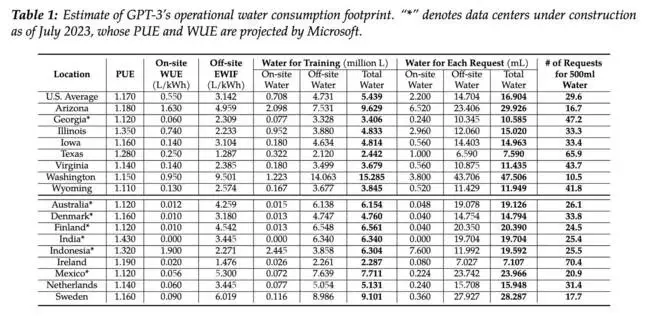In a burgeoning controversy over the environmental impact of artificial intelligence, a new report from Google is drawing criticism for allegedly misleading the public about AI’s water consumption. The report claims that software efficiencies have reduced the water consumed by a median Gemini prompt to roughly five drops of water, a figure presented as being "substantially less than prior estimates." However, this claim is being challenged by a leading researcher whose work was cited in the Google report.
The "Apples to Oranges" Problem
According to Shaolei Ren, an associate professor at UC Riverside, Google's comparison is flawed because it draws a false equivalence between on-site and total water consumption. Data centers consume water in two primary ways: on-site for cooling the facilities and off-site in the process of generating the electricity that powers the servers. Ren, a co-author of the paper cited by Google, emphasizes that Google's new 0.26ml figure represents only the on-site consumption, while the higher figures it attempts to discredit—such as the 47.5ml figure from his team's research—account for both on-site and off-site water usage.
Ren contends that Google's report fails to meet the minimum standards of scientific comparison by not using an "apples-to-apples" methodology. He points out that his team's 2023 paper did, in fact, include an on-site water consumption estimate, putting the average US data center's figure at 2.2ml per request. Google's claim, therefore, is being seen as a selective use of data to present a more favorable picture. Ren adds that Google not only compared different types of data but also chose the single highest total water consumption figure from his team's research, out of 18 different locations, to maximize the perceived difference.

Google's Response and the Broader Context
When questioned about the misleading comparison, Google provided a statement that discredited the UC Riverside research, arguing that its methodology was flawed and that it assumed a power grid not reflective of Google’s operations. Ben Townsend, Google's head of infrastructure strategy and sustainability, stated that their hydrologists found the claims to be flawed. However, Google did not address why it used the UC Riverside paper's off-site data while presenting only its own on-site data.
While AI is expected to become more resource-efficient over time, experts like Ren stress that the industry needs to adopt a holistic and transparent approach to measuring environmental impact. The debate highlights a significant issue in the rapidly expanding AI sector: a lack of standardized metrics and transparency, which makes it difficult for the public and policymakers to accurately assess the true environmental cost of a technology that is quickly becoming a cornerstone of modern life.

